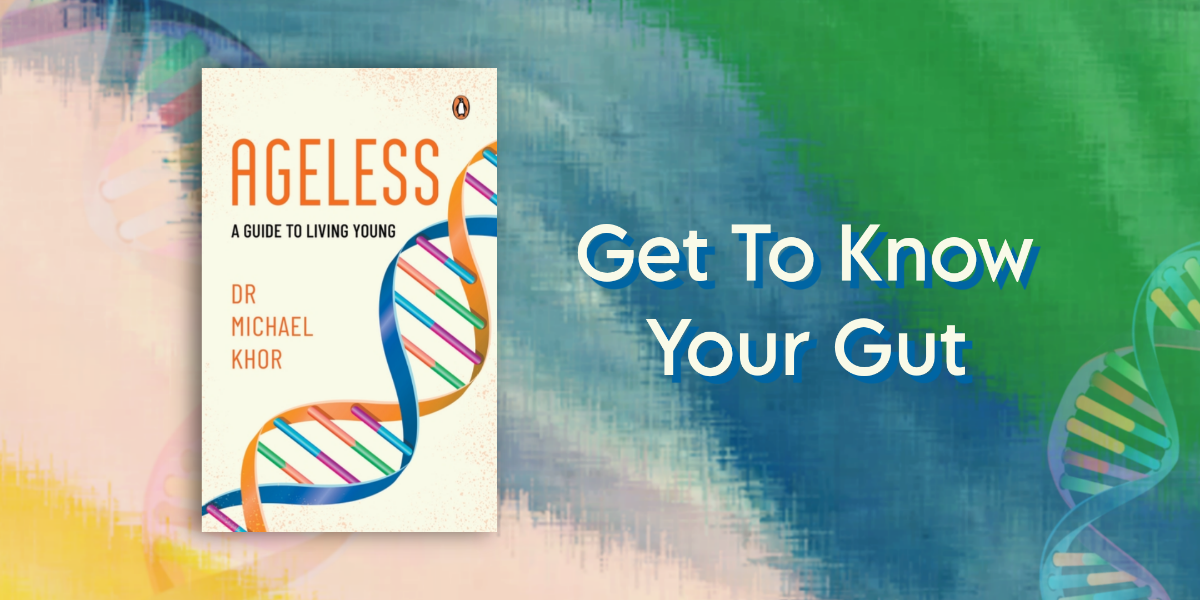
Ageless aims to bridge the gap between the bench and bedside, to further Dr Michael Khor Kok Seng’s legacy of service to the community and to educate the reader by promoting healthy living and informed choices. Here is an excerpt from the book.
***
Gut dysbiosis
The gut is very important to us. We use the word ‘gut’ in both literal and abstract ways. These are all abstracts using the word gut.
- No guts = scared, running away
- Gut feeling = instinct/intuition
- Having guts = courage
- A kick in the guts = a big setback
In literal terms, the gut means the intestines or the digestive tract. There are enzymes in the gut that digest the food that we consume. The gut also protects us as a barrier against the bad bacteria that we ingest together with the food that we eat, as well as the poisons and heavy metals that are accidentally taken in.
Among the essential metabolites produced by the gut microbiome are vitamins, protein derivatives (amino acid parts), bile acids, and short chain fatty acids (SCFA). Sugars like table sugar and lactose (milk sugar) are quickly absorbed in the upper part of the small intestine, but more complex carbohydrates like starches and fibres are not as easily digested and may travel lower to the large intestine. There, the microbiota help to break down these compounds with their digestive enzymes. The fermentation of indigestible fibres causes the production of SCFA that can be used by the body as a nutrient source but also play an important role in muscle function and possibly the prevention of chronic diseases, including certain cancers and bowel disorders. Clinical studies have shown that SCFA may be useful in the treatment of ulcerative colitis, Crohn’s disease, and antibiotic-associated diarrhoea.
The difference in the composition of the gut microbiota can determine how healthy we are and how long we can live. A healthy gut means a good balance of microbes in our body. These microbes have a lot of functions in the body.
The gut microbiome is a key factor in multiple processes:
- It helps to digest and absorb ingested nutrients.
- It protects as a barrier against harmful organisms.
- It allows the passage into the body of beneficial agents.
- It produces essential metabolites like vit B and K.
- It provides signalling of peripheral and central nervous systems.
Harm can occur in the body when:
- The composition of the gut microbiota is changed, or
- The intestinal barrier is compromised.
Some organisms may be pathogenic and cause disease. Although the body and the totality of all these microbes live together peacefully, sometimes there is an imbalance between the synergistic and disease-causing microbes, especially in the elderly. This causes a dysbiosis, a disturbance in the microenvironment in the gut.
***
Using a combination of personal anecdotes and thorough research, this book is written with the layman in mind, and lays down the latest scientific evidence in man’s search for healthy longevity.








